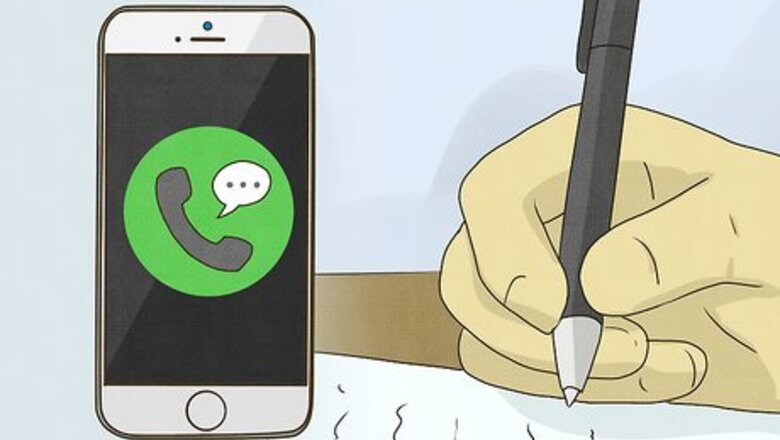
views
Completing Your Phone Interview
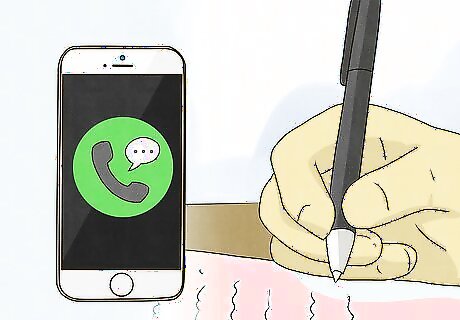
Complete any required documents before your interview. If you receive a notice for a phone interview, it may include additional paperwork that you need to fill out before the phone interview. The purpose is to ensure that the interview runs smoothly. Get your paperwork in as soon as possible. Don't wait until the last minute, especially if you have to rely on the mail to get your paperwork to the unemployment office. If there are questions included in your notice, write out answers to these questions and make copies of any documentation you have that supports your answers.
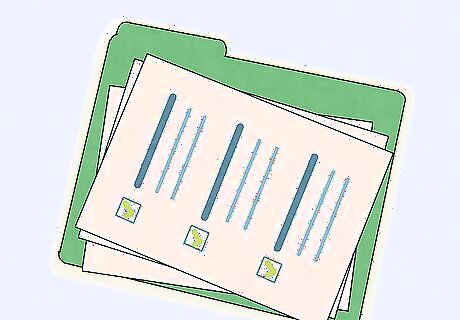
Gather your records before the interview. You'll need a copy of your unemployment application, your separation notice (if you got one), and any other documents related to your former employment. Organize these before the phone call so you don't have to go hunting for them. You may also want to have a copy of your resumé on hand. If you've applied for any new jobs, keep a running list of the applications you've submitted and the status of those applications. This shows that you're making a serious effort towards finding new work. Being prepared and organized will make a good impression on the interviewer.
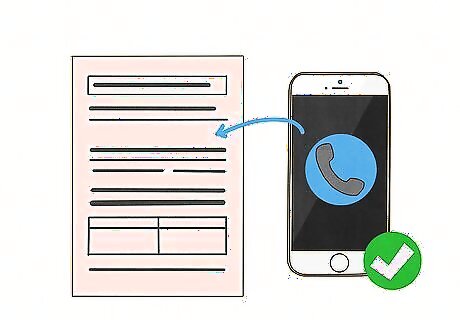
List your cell phone number on your application. Phone interviews are difficult to reschedule. If you provide a cell phone rather than a landline, you don't have to worry about sitting by the phone waiting for someone to call. The number you give should be for a phone that you have control over. Don't give the number for a family member's phone, especially if you're frequently apart from each other during the day. If you have a prepaid phone, make sure you have enough minutes to take the call.

Answer the phone professionally. When the interviewer calls, answer with your full name and a polite greeting. Don't just say "hi" or "hello," or use more casual phone greetings. When the interviewer introduces themselves, you might also let them know that you've been looking forward to their call. For example, you might say "Hello, this is Sally Sunshine. How may I help you today?" When the interviewer responds, repeat their name and say "I've been looking forward to speaking with you." If you have voice mail set up on your phone, make sure your outgoing message is friendly and professional. Though the unemployment office may not hear it, potential employers might.

Provide detailed, factual responses. Be as specific and detailed as you can, but stick to the facts. Don't embellish or exaggerate any aspect of your answers, especially with questions related to how you lost your job or the events leading up to your termination. Your interviewer will likely speak to your former employer. Don't say anything during the interview that you wouldn't want getting back to them. If you don't know an answer to a question or don't remember the specific details, just say so. Don't speculate or try to guess. If you turn out to be wrong later, it could come back to haunt you.

Stay on topic with your answers. Respond to the interviewer's questions directly, without going off on tangents or providing irrelevant details. If there are other issues related to your former job, such as a work injury or harassment, mention that they exist but don't go into details. For example, you might say "I had a workers' compensation claim 2 weeks ago. I'm currently consulting an attorney regarding that matter and I'll keep the unemployment office updated on the progress of that claim." Even though you're likely angry and frustrated, don't take it out on the interviewer, and avoid going off on your old boss or complaining about your old workplace. Your interviewer conducts these interviews every day – they've already heard it all, and emotional pleas are not going to sway their opinion.

Maintain a polite and professional tone throughout the interview. The worker may ask a question that offends you, or that seems accusatory or rude. Keep in mind that the worker is just trying to do their job and make sure everyone they interview is truly qualified for benefits. One way to diffuse an offensive or accusatory question is to say you don't understand the question and repeat it back to them. For example, you might say "I'm sorry, I'm confused. Are you asking if I was terminated because of the write-up for tardiness?" After you get clarification, politely say something like "thank you for the opportunity to clear that up." It's appropriate to address the interviewer as "sir" or "ma'am." You might also want to ask from the outset what they prefer to be called.
Answering Claim Certification Questions
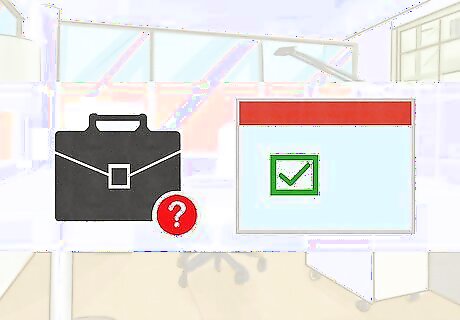
Explain when you were able and available to work. The key to continued eligibility for unemployment benefits is that you are able and available for work. If you weren't both able and available all 7 days of the week, your benefits may be reduced. For example, you may have been unable to work for 2 days because you were sick. Be honest about this in your claim certification. If you were unavailable for any other reason, state that reason specifically. You may be able to keep your full benefits for the week if you were unavailable through no fault of your own.
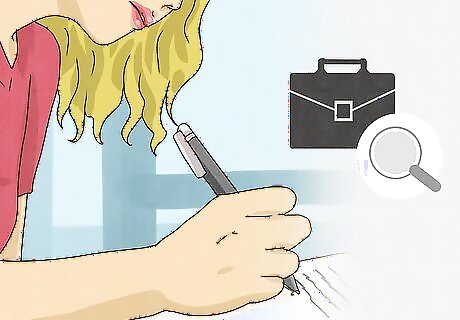
Describe your job search. You're expected to actively look for work the entire time you're getting unemployment benefits. Some states may have specific job search sites you're supposed to use. You may also be required to attend a specific number of interviews each week, or submit a specific number of applications. Write down the name and address of any company where you submitted an application, along with the job title for which you applied. Include the date you submitted each application, and the current status of that application. This includes any follow-up calls you've made to the company or any letters you've received regarding your application.

List any job interviews you had. If you had job interviews over the course of the week covered by your certification, provide the name of the employer along with the date and time of the interview. You may also include the job title for which you were interviewed. If you scheduled future interviews, you may want to list those as well, along with the date when the interview is scheduled.

Be honest if you turned down employment. Refusing a job offer may mean you're no longer eligible for unemployment benefits. However, you're not required to accept just any job offer as a condition of keeping your benefits. You are only required to accept an offer that is suitable for your educational background and work experience. For example, if you have a law degree, you wouldn't be required to accept an offer to be a clerk at a supermarket or fast food restaurant. If you turned down an offer but believe it wasn't in keeping with your qualifications, be prepared to explain that.
Reporting Wages Earned
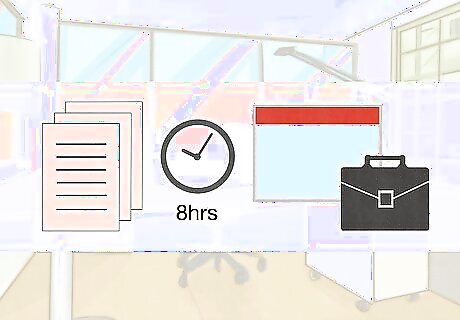
Keep records of your hours worked. You must report any wages you earned to unemployment for the week that you earned them, not the week you receive them. If you just started a new job and haven't received a paycheck yet, you still have earnings to report. Record the number of hours you work each day. Pay attention to the dates covered on your unemployment claim certification. Only report the hours you worked on those days, regardless of the "work week" your employer uses.
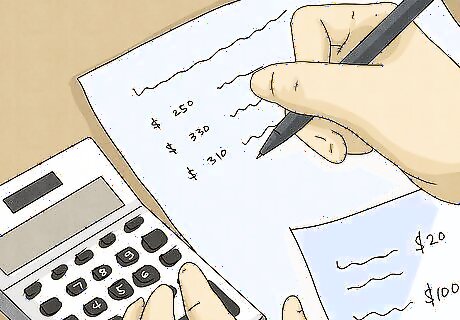
Compute your gross earnings. For the purposes of unemployment benefits, you need your earnings before taxes and any payroll deductions, such as for health insurance. This is different from the amount on your paycheck. If you haven't received a paycheck yet, you can get your gross earnings from your employer. You can also figure them up by multiplying the number of hours you worked by your hourly rate.

List the name and address of your employer. Use the full legal name of your employer. If you got work through a temporary agency, include the name and address of the agency as well as the company where you were assigned. You'll likely have to state whether you anticipate you'll be working for that employer next week. If you won't be working for that employer next week, you typically must provide a reason.

Choose whether to have federal income tax withheld. When you file your weekly compensation certification, let the unemployment office know whether you want them to withhold federal income tax from your unemployment benefits. If you choose not to have taxes withheld, you may end up having to pay taxes at the end of the year.


















Comments
0 comment